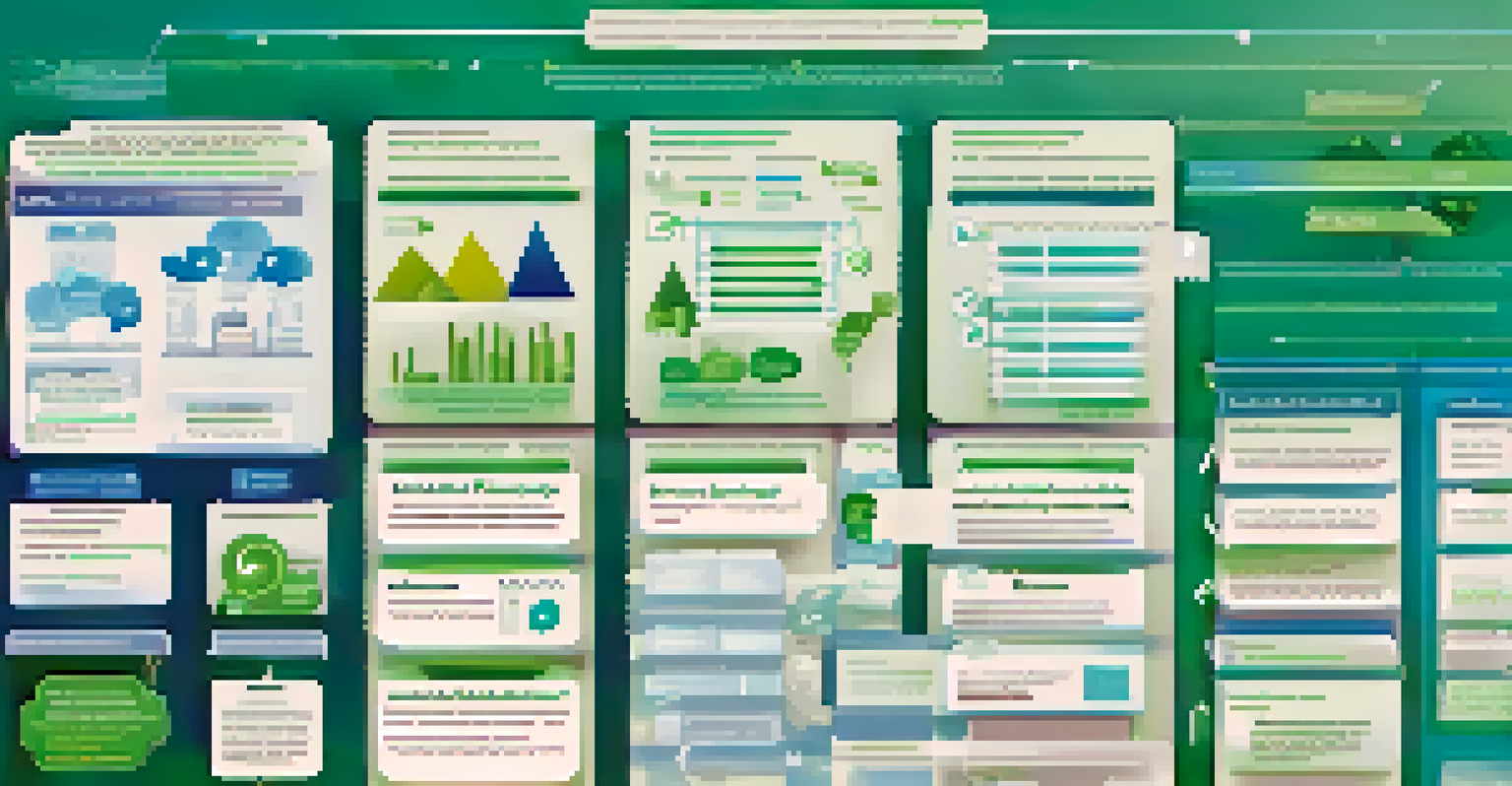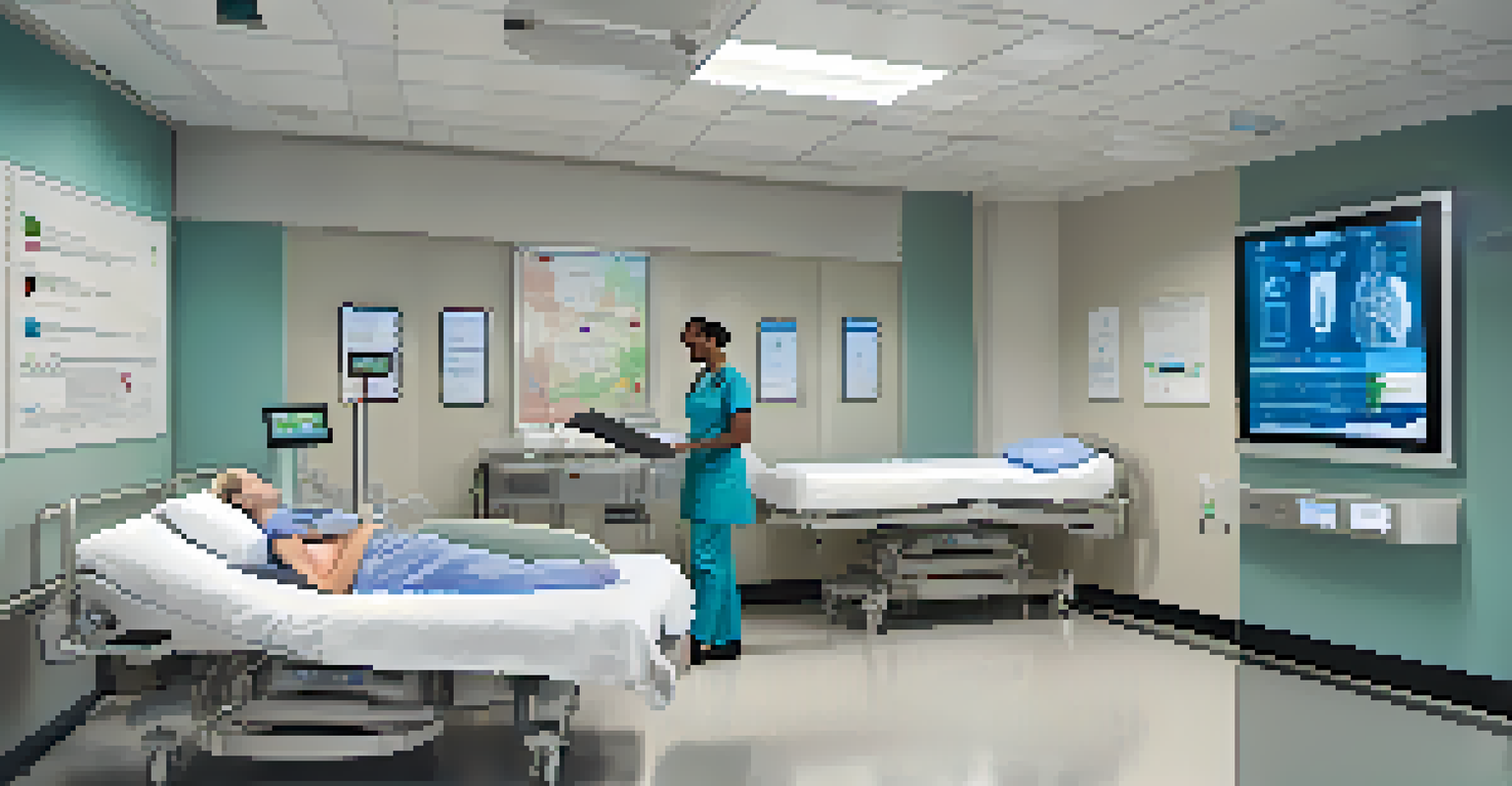EHRs and Their Impact on Provider Workflows

Understanding Electronic Health Records (EHRs)
Electronic Health Records (EHRs) are digital versions of patients' paper charts. They provide real-time, patient-centered records that make information available instantly and securely to authorized users. EHRs streamline the clinician's workflow by allowing easy access to patient data, thus improving the overall quality of care.
The goal of EHRs is to improve patient care by having all information at a provider's fingertips, reducing errors and enhancing communication.
These systems not only store patient histories but also track data over time, enabling providers to make informed decisions based on comprehensive health information. Imagine being able to see a patient's entire history, lab results, and medication lists with just a few clicks. This capability transforms how healthcare providers deliver care.
However, understanding EHRs is just the beginning. As we dive deeper, we will see how their implementation impacts the daily workflows of healthcare providers, enhancing efficiency while presenting some challenges.
The Efficiency Boost from EHRs
One of the most significant impacts of EHRs on provider workflows is the boost in efficiency. With traditional paper records, finding a patient's information could take time, often leading to delays in care. EHRs eliminate this wait by providing instant access to vital patient data, allowing providers to focus more on patient care rather than paperwork.

For instance, consider a busy physician who needs to review a patient's history before a consultation. With EHRs, they can quickly pull up the necessary information without sifting through stacks of paper. This immediate access not only saves time but also enhances the accuracy of the information being reviewed.
EHRs Enhance Healthcare Efficiency
Electronic Health Records streamline access to patient information, allowing healthcare providers to spend more time on patient care rather than paperwork.
Overall, the efficiency gained through EHRs significantly improves workflow processes, allowing healthcare providers to spend more quality time with their patients, ultimately leading to better outcomes.
Enhancing Communication Among Providers
EHRs facilitate better communication among healthcare providers, which is vital for coordinated patient care. When specialists, primary care providers, and other healthcare professionals can easily share information, it leads to a more holistic approach to treatment. For instance, a patient's cardiologist can quickly share updates with their primary care physician through the EHR system.
Electronic Health Records are the backbone of modern healthcare, allowing for better collaboration and a more patient-centered approach.
This seamless information exchange reduces the risk of errors, such as medication interactions or duplicate tests, which can occur when providers work in silos. By having access to the same data, everyone involved in a patient's care is on the same page, making teamwork more effective.
In essence, EHRs serve as a bridge connecting different healthcare providers, enhancing collaboration and ultimately leading to improved patient care.
Challenges in EHR Adoption and Integration
While EHRs offer numerous benefits, their adoption and integration come with challenges. Many providers face a learning curve when transitioning from paper-based systems to digital records. This adjustment period can initially disrupt workflows, as staff members learn to navigate new software and processes.
Moreover, not all EHR systems are created equal; some may lack user-friendly interfaces or have technical issues that complicate usage. These challenges can lead to frustration among providers, potentially hindering the anticipated efficiency gains.
Improved Provider Communication
EHRs facilitate seamless information exchange among healthcare providers, leading to better coordination and fewer errors in patient treatment.
Despite these hurdles, it's essential to recognize that with proper training and support, the long-term benefits of EHRs can outweigh the initial difficulties, leading to smoother workflows in the future.
Improving Patient Engagement through EHRs
EHRs play a crucial role in enhancing patient engagement, empowering patients to take an active role in their healthcare. Many EHR systems offer patient portals, allowing individuals to access their health information, schedule appointments, and communicate with their providers. This level of accessibility fosters a sense of ownership and responsibility regarding their health.
For example, a patient can review their lab results online and discuss them during their next visit, leading to more informed conversations with their healthcare provider. This engagement not only improves patient satisfaction but also encourages adherence to treatment plans.
In a world where patient-centered care is becoming increasingly important, EHRs serve as a vital tool in fostering collaborative relationships between patients and providers.
The Role of EHRs in Data Analytics
EHRs also contribute significantly to data analytics in healthcare, allowing providers to analyze trends and improve care quality. With the wealth of data collected through EHRs, healthcare organizations can identify patterns in patient health, treatment effectiveness, and even operational efficiency. This data-driven approach leads to evidence-based practices that enhance patient care.
For instance, a clinic might analyze EHR data to determine which treatments are most effective for certain conditions. By leveraging this information, they can refine their practices, leading to better patient outcomes and optimized resource allocation.
Boosting Patient Engagement
EHR systems empower patients through portals that provide access to their health information, fostering active participation in their care.
Ultimately, the analytical capabilities of EHRs not only support individual practices but also contribute to broader public health initiatives, driving improvements across the healthcare system.
Future Trends in EHR Technology
As technology continues to evolve, so too will EHR systems. Future trends include increased interoperability, allowing different EHR platforms to communicate seamlessly, enhancing the sharing of patient information across various healthcare settings. This development could significantly improve care coordination and reduce redundancies in testing and treatment.
Additionally, advancements in artificial intelligence (AI) may lead to smarter EHRs that can assist providers in decision-making. Imagine an EHR system that not only records data but also offers insights and recommendations based on a patient's unique health profile.

These innovations promise to further streamline workflows, making healthcare delivery more effective and patient-centered in the years to come.